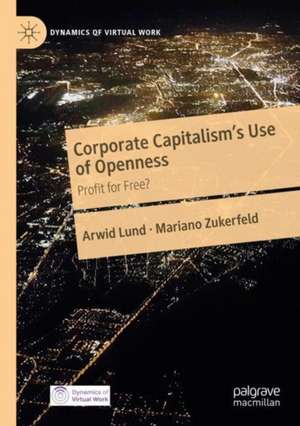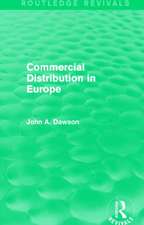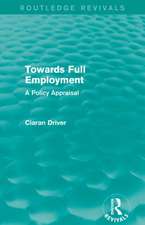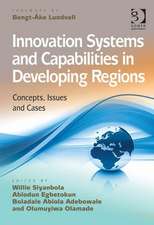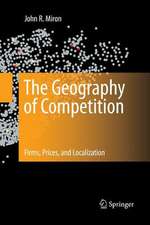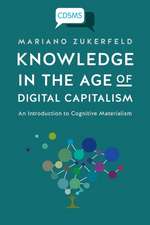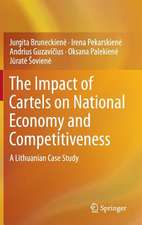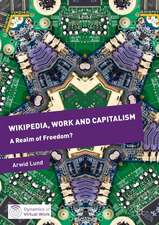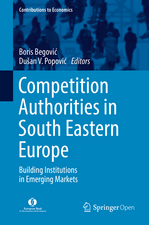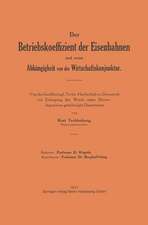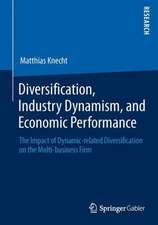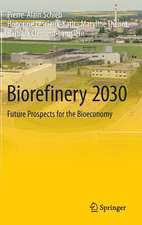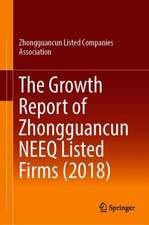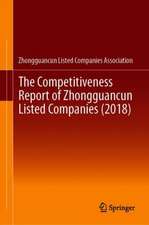Corporate Capitalism's Use of Openness: Profit for Free?: Dynamics of Virtual Work
Autor Arwid Lund, Mariano Zukerfelden Limba Engleză Paperback – 26 aug 2021
“This vital book is an objective and detailed assessment of the private capture of common value, concluding with an in-depth survey of what commons-friendly public authorities could do to defend the new 'common-wealth'.” (Michel Bauwens, Founder of the P2P Foundation, The Netherlands)
“An outstanding analysis of how digital capital uses openness as principle of capital accumulation and exploitation. A must-read for everyone who wants to understand what the internet and digital media are all about.” (Christian Fuchs, University of Westminster, UK)
This book tackles the concept of openness (as in open source software, open access andfree culture), from a critical political economy perspective to consider its encroachment by capitalist corporations, but also how it advances radical alternatives to cognitive capitalism.
Drawing on four case studies, Corporate Capitalism’s Use of Openness will add to discussion on open source software, open access content platforms, open access publishing, and open university courses. These otherwise disparate cases share two fundamental features: informational capitalist corporations base their successful business models on unpaid productive activities, play, attention, knowledge and labour, and do so crucially by resorting to ideological uses of concepts such as “openness”, “communities” and “sharing”.
The authors present potential solutions and alternative regulations to counter these exploitative and alienating business models, and to foster digital knowledge commons, ranging from co-ops and commons-based peer production to state agencies' platforms. Their research and findings will appeal to students, academics and activists around the world in fields such as sociology, economy, media and communication, library and information science, political sciences and technology studies.
| Toate formatele și edițiile | Preț | Express |
|---|---|---|
| Paperback (1) | 727.00 lei 6-8 săpt. | |
| Springer International Publishing – 26 aug 2021 | 727.00 lei 6-8 săpt. | |
| Hardback (1) | 737.57 lei 6-8 săpt. | |
| Springer International Publishing – 29 feb 2020 | 737.57 lei 6-8 săpt. |
Din seria Dynamics of Virtual Work
-
 Preț: 358.81 lei
Preț: 358.81 lei - 20%
 Preț: 691.18 lei
Preț: 691.18 lei -
 Preț: 384.48 lei
Preț: 384.48 lei - 15%
 Preț: 699.28 lei
Preț: 699.28 lei - 15%
 Preț: 641.71 lei
Preț: 641.71 lei - 15%
 Preț: 698.15 lei
Preț: 698.15 lei - 18%
 Preț: 784.13 lei
Preț: 784.13 lei - 15%
 Preț: 704.04 lei
Preț: 704.04 lei - 15%
 Preț: 700.94 lei
Preț: 700.94 lei - 18%
 Preț: 728.91 lei
Preț: 728.91 lei -
 Preț: 390.25 lei
Preț: 390.25 lei - 15%
 Preț: 646.62 lei
Preț: 646.62 lei - 18%
 Preț: 784.92 lei
Preț: 784.92 lei - 15%
 Preț: 500.26 lei
Preț: 500.26 lei -
 Preț: 217.07 lei
Preț: 217.07 lei - 18%
 Preț: 958.73 lei
Preț: 958.73 lei - 15%
 Preț: 582.95 lei
Preț: 582.95 lei - 18%
 Preț: 779.26 lei
Preț: 779.26 lei -
 Preț: 389.31 lei
Preț: 389.31 lei - 18%
 Preț: 783.35 lei
Preț: 783.35 lei - 18%
 Preț: 726.23 lei
Preț: 726.23 lei - 18%
 Preț: 785.55 lei
Preț: 785.55 lei - 15%
 Preț: 640.88 lei
Preț: 640.88 lei
Preț: 727.00 lei
Preț vechi: 886.59 lei
-18% Nou
Puncte Express: 1091
Preț estimativ în valută:
139.14€ • 144.87$ • 117.58£
139.14€ • 144.87$ • 117.58£
Carte tipărită la comandă
Livrare economică 10-24 martie
Preluare comenzi: 021 569.72.76
Specificații
ISBN-13: 9783030282219
ISBN-10: 303028221X
Pagini: 338
Ilustrații: XVIII, 338 p. 24 illus., 23 illus. in color.
Dimensiuni: 148 x 210 mm
Greutate: 0.43 kg
Ediția:1st ed. 2020
Editura: Springer International Publishing
Colecția Palgrave Macmillan
Seria Dynamics of Virtual Work
Locul publicării:Cham, Switzerland
ISBN-10: 303028221X
Pagini: 338
Ilustrații: XVIII, 338 p. 24 illus., 23 illus. in color.
Dimensiuni: 148 x 210 mm
Greutate: 0.43 kg
Ediția:1st ed. 2020
Editura: Springer International Publishing
Colecția Palgrave Macmillan
Seria Dynamics of Virtual Work
Locul publicării:Cham, Switzerland
Cuprins
1. Introduction.- 2. Profit from Openness: A Critique of a New Business Model.- 3. Profiting from Free and Open Source Software.- 4.Profiting from Open Access Publishing.- 5. Profiting from Open Audiovisual Content.- 6. Profiting from Massive Open Online Courses. - 7. Conclusions and Policies.
Notă biografică
Arwid Lund is Assistant Professor in Library and Information Science at the Department of Cultural Sciences at Linnaeus University, Sweden.
Mariano Zukerfeld is Associate Professor at Buenos Aires University, Researcher at National Scientific and Technical Council of Argentina (CONICET) and Head of Technology, Capitalism and Society team (e-TCS) at the Science, Technology and Society Centre, Maimónides University, Argentina.
Mariano Zukerfeld is Associate Professor at Buenos Aires University, Researcher at National Scientific and Technical Council of Argentina (CONICET) and Head of Technology, Capitalism and Society team (e-TCS) at the Science, Technology and Society Centre, Maimónides University, Argentina.
Textul de pe ultima copertă
This book tackles the concept of openness (as in open source software, open access and free culture), from a critical political economy perspective to consider its encroachment by capitalist corporations, but also how it advances radical alternatives to cognitive capitalism.
Drawing on four case studies, Corporate Capitalism’s Use of Openness will add to discussion on open source software, open access content platforms, open access publishing, and open university courses. These otherwise disparate cases share two fundamental features: informational capitalist corporations base their successful business models on unpaid productive activities, play, attention, knowledge and labour, and do so crucially by resorting to ideological uses of concepts such as “openness”, “communities” and “sharing”.
The authors present potential solutions and alternative regulations to counter these exploitative and alienating business models, and to foster digital knowledge commons, ranging from co-ops and commons-based peer production to state agencies' platforms. Their research and findings will appeal to students, academics and activists around the world in fields such as sociology, economy, media and communication, library and information science, political sciences and technology studies.
Drawing on four case studies, Corporate Capitalism’s Use of Openness will add to discussion on open source software, open access content platforms, open access publishing, and open university courses. These otherwise disparate cases share two fundamental features: informational capitalist corporations base their successful business models on unpaid productive activities, play, attention, knowledge and labour, and do so crucially by resorting to ideological uses of concepts such as “openness”, “communities” and “sharing”.
The authors present potential solutions and alternative regulations to counter these exploitative and alienating business models, and to foster digital knowledge commons, ranging from co-ops and commons-based peer production to state agencies' platforms. Their research and findings will appeal to students, academics and activists around the world in fields such as sociology, economy, media and communication, library and information science, political sciences and technology studies.
Caracteristici
Addresses issues of governance and citizenship, politics and policy outcomes Sits at the intersection of three fields of knowledge concerning commons and collaborative production, new business models on the Internet, and politics of cognitive capitalism’s social relations Establishes the particularities of "open" business models and the ways in which these models are implicated in contemporary capitalist accumulation
